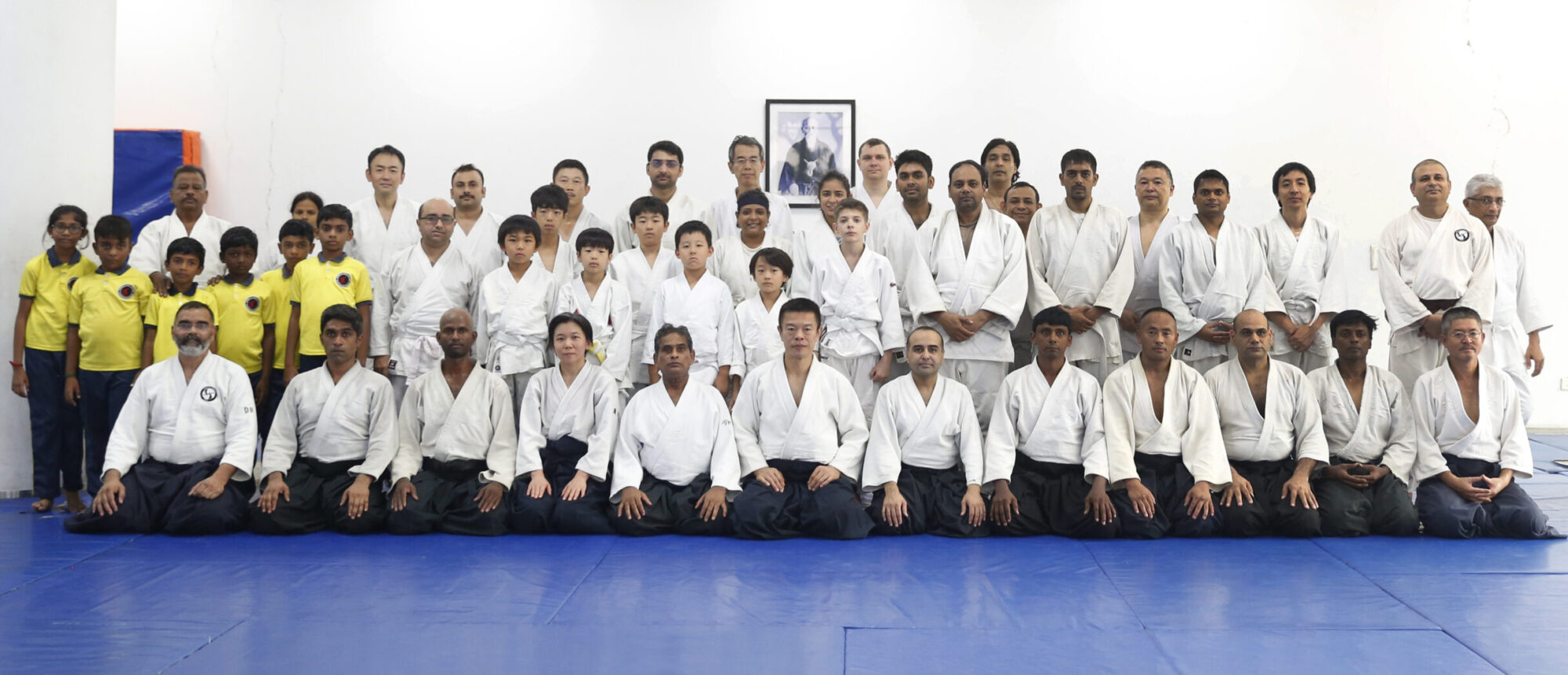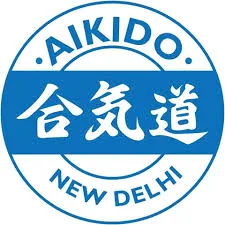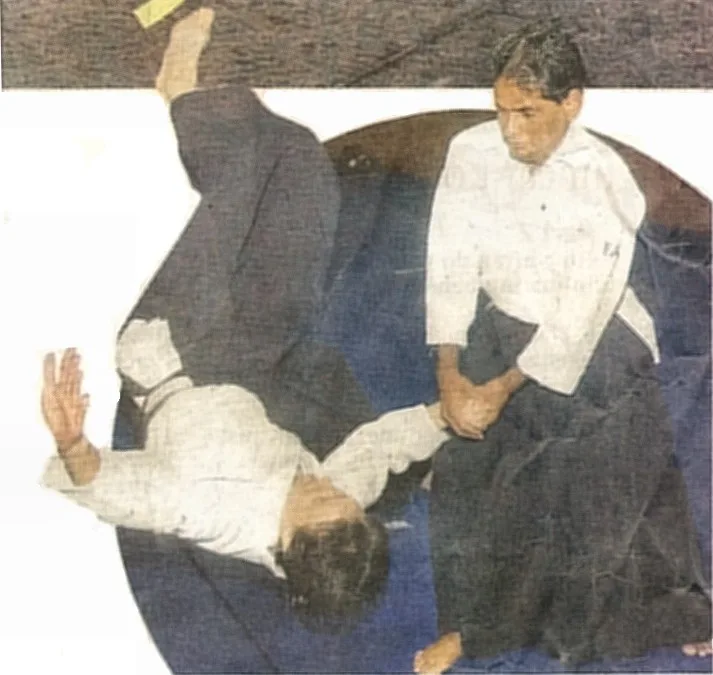Pic: CMA Times. January, 2007 (New Delhi)
The New Delhi Aikido Dojo was opened in November 2004 by Sensei Paritos Kar, a 4th Dan Black Belt from Aikikai Hombu Dojo Tokyo, who returned to India after living for 15 years of in Japan.
Sensei Paritos Kar is one of the few martial art instructors in India to have the courage to start teaching aikido professionally. To come to Delhi to open an aikido dojo was undoubtedly a big decision for him to make: aikido is almost unheard of in India and it is considered to be a non-competitive “sport” and so it does not interest schools. Moreover, it requires mats and a dedicated space. However, Sensei Kar’s sincerity and dedication helped him to overcome the initial difficulties and attracted like-minded people to help him in his mission.
During the two years of the dojo’s existence, the active membership has grown stronger: as of now, there are about 30 adults, Indians and foreigners, men and women, all training cooperatively. Many current dojo members have a martial arts background. However it is often said that once you start practicing aikido, it is practically impossible to go back to other martial arts because aikido is so different in its approach.
The uniqueness of aikido lies it its spiritual philosophy which was taught by the founder, O-Sensei Morihei Ueshiba and encompasses an attitude of peace and love for all living beings and a oneness with nature and the cosmos. As peace and love have no enemies, an aikido practitioner has no enemies, no opponents to fight. Any aggressive force directed at an aikido practitioner is redirected and effectively neutralized without doing harm to the attacker. The aikidoka’s response is fast, the technique is invisible and it utilizes the aggressor’s own energy and turns it against him. This normally is enough to stop the aggressor in his tracks and to prevent an escalation of the conflict.
Aikido training is not soft or easy by any means. In fact, it is considered one of the most technically difficult and even “esoteric” martial arts. However, the good news is that there are no age limits in aikido. In the Hombu Dojo (The World Aikido Headquarters), Tokyo, I saw many senior people, some in their seventies and even eighties, practicing aikido on a regular basis. There was an elderly man who had knee replacement surgery who was a regular in the early morning class, always with a small foldable stool to help him to do the sitting techniques. The age factor is not a problem in aikido. On the contrary, with many years of practice the techniques become awesomely powerful and imperceptible. The practitioner does not rely on muscle strength but invisibly blends and utilizes the energy of his or her partner/opponent.
I have never met a person who claimed that they had perfected their aikido. The aiki spirit is ever elusive and the search for perfection lasts a life time. It becomes a way of life for many practitioners. In our dojo we have regular visitors from abroad. This is another tradition: an aikidoka while traveling prefers to carry his keiko-gi (practice uniform) and a hakama (black traditional samurai pants) with him – just in case there is an opportunity to practice.
Aikido practitioners from different counties are welcome to practice in our dojo. Through them we get exposure to different styles and, indirectly, to the teaching of various great aikido masters.
In 2006 the dojo was fortunate to hold 3 seminars conducted by distinguished aikido masters: Shihan Gaku Homma Sensei, the founder and chief instructor of the Nippon Kan, Denver, USA, Shihan Terry Ezra Sensei, the founder and chief instructor of Komyokan Aikido, UK, and K. Sakurai Sensei, 6th dan from the Aikikai Hombu Dojo. Not only did these senseis came and stayed in New Delhi at their own expense, they also taught the students for free. Their mastery of the art combined with their goodwill has helped to boost the nascent art of aikido in India and give tremendous encouragement and experience to our pioneering aikido students.
It is evident that after the two years of hard work and sacrifice on the part of Sensei Paritos Kar, the New Delhi Aikido Dojo has finally established itself and is poised for new growth. We hope that the year 2007 will be rich in aikido experiences and events and that the dojo will attract more dedicated, talented Indian students capable of becoming aikido instructors.


